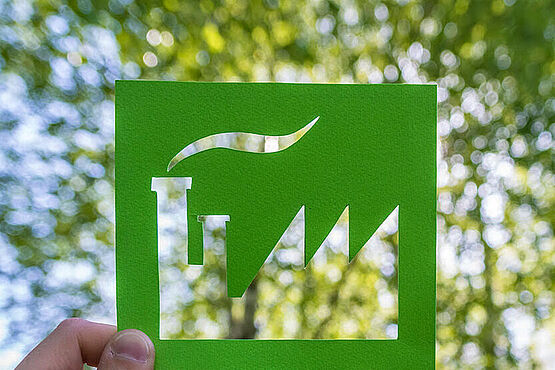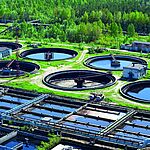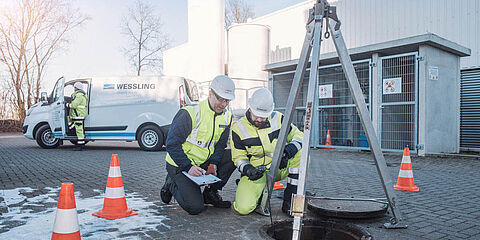Life cycle assessments for companies - sustainable business
What impact does the life cycle of a product have on the environment? What levels of input and output of resources, i.e. consumption and emissions, determine the ecological footprint of the product?

The aim of a life cycle assessment is to record the relevant data to the fullest extent possible and to evaluate the environmental impact.
The term life cycle assessment (LCA) clearly illustrates the objective of drawing up a kind of balance sheet or ecological audit. When first used, the term referred solely to the evaluation of products but it is now applied more broadly to incorporate services and processes.
WESSLING prepares life cycle assessments for companies and provides support for them in assuming ecological, economic and corporate social responsibility. The advantage of the ecological audit is that it highlights areas where there is room for improvement in your processes, resources and products. Life cycle assessments are also a valuable building block for transparency in the demonstration of your sustainability efforts to the consumer.
Life cycle assessments for improved and sustainable production processes
The WESSLING experts prepare life cycle assessments on the basis of the DIN EN ISO 14040 and DIN EN ISO 14044 standards. The results of your life cycle assessment will allow you to identify commercially viable measures which can be put in place to bring about sustainable improvements. Life cycle assessments, the environmental impact audit and the calculation of the CO2 footprint all provide a document trail for the consumption of resources. The information indicates clearly where there is potential for saving money and is also cited by companies in their sustainability reports.
Our services for your industry
WESSLING provides individual service packages that are tailored to the needs of your company.
Corporate carbon footprint and product carbon footprint
In addition to producing high-quality life cycle assessments, our experts therefore also calculate the carbon footprint of your company or the carbon footprint of your products. The difference is that the life cycle assessment takes account of the total impact of products or processes on the environment but the other evaluations focus solely on the CO2 footprint.
Sustainability reports and ecological balance sheets for your company
The data on greenhouse gas emissions are transparent in these reports – an important pillar in identifying effective reduction measures. We refer to DIN EN ISO 14064 when preparing the corporate carbon footprint while the product carbon footprint is based on DIN EN ISO 14067.
Life cycle assessments, corporate carbon footprint reports and product carbon footprint evaluations are only ever as good as the available information on which they are based, however. WESSLING therefore uses recognised, high-quality databases as sources of reference in its work.
Environmental Product Declarations (EPD) for construction products and building materials
A sign of quality in modern building products is the inclusion of data on their environmental impact and information relevant to health, as presented in the EPD (Environmental Product Declaration). Construction materials with an EPD have a clear advantage when submitting tenders in sustainable building projects. WESSLING is also the reliable partner you need for the preparation of an Environmental Product Declaration. Our in-house laboratory analysis and consultancy services are closely integrated therefore we can provide all the services from one single source and prepare the EPD for your construction product.
Contact person for issues relating to life cycle assessments
- Dr. Michael Jahnz
- +86 21 337 253 67
- michael.jahnz@wessling.cn

„Sustainability has become a buzzword in corporate management & is tantamount to securing the future viability of a company. We draw up life cycle assessments covering the essential facts with a view to supporting you in your corporate responsibility!“









